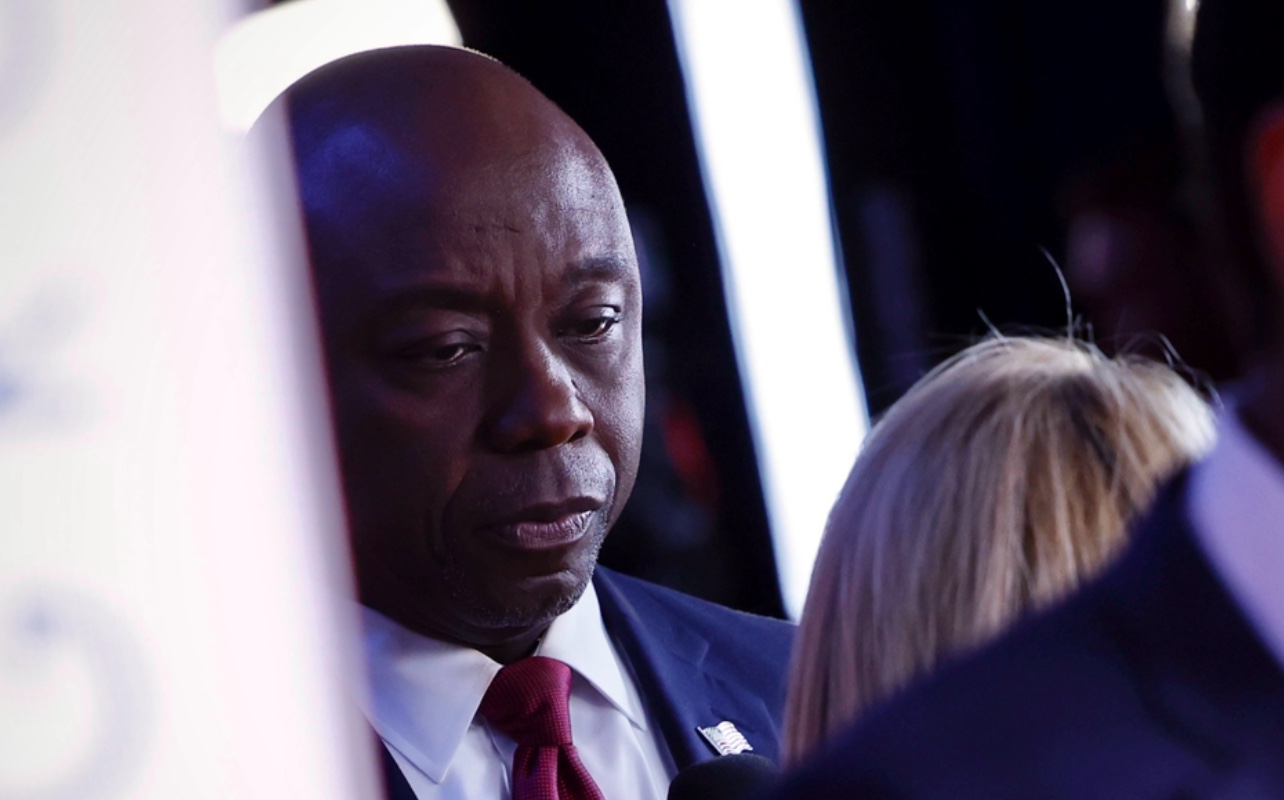
May 23, 2025
The Congressional Budget Office (CBO) estimates that the changes in the “big, beautiful bill” would cause 7.6 million people to become uninsured.
Hours after the House passed some of the strictest work requirements in its “big, beautiful bill,” Sen. Tim Scott (R-SC) proclaimed that anyone on Medicaid should be working.
During an interview on Fox News’ Hannity, the ranking member of the Senate Banking Committee touched on one of the reasons House Republicans passed a new Medicaid recipient policy—215 to 214—requiring them to have proof of employment as a condition of receiving health insurance.
“If you’re on Medicaid, you should be able to work. If you can work, you should work,” Scott said. “Having the restoration of work requirements saves billions of dollars. We can keep the integrity of Medicaid while putting in place work requirements and eliminating illegal immigrants from receiving Medicaid.”
This isn’t the first time Republicans have banded together to tackle such requirements. According to the New York Times, a number of attempts have resulted in state-level experiments being blocked in court. The passed requirements leave room for recipients to lose benefits more easily and make it harder to enroll. New rules will also apply to a larger percentage of Medicaid recipients, like American citizens labeled as being too old to have such requirements attached.
The Congressional Budget Office (CBO) estimates that Medicaid changes would cause 7.6 million people to become uninsured, with several people expected to lose coverage and be unable to prove eligibility under the new standard. On the flip side, adding work requirements can save the federal government approximately $280 billion over the next six years.
However, experts like Harvard University professor of health policy Benjamin Sommers feel the estimated savings don’t equal what President Donald Trump was campaigning for.
“What this is really about is producing budget savings,” Sommers said. “This is not savings through improved efficiency, or more people going to work. It’s savings by kicking people out of the program who are mostly eligible.”
New policies also target heavy rural areas in addition to the African-American community, some in the region that Scott serves.
NPR reports South Carolina is one of the few states in the Southeast that have refused to expand Medicaid, despite research revealing that expanding medical insurance would create thousands of jobs across the Upstate. Instead, the limitations increase the racial disparities that unwell African-Americans face.
“There is a disconnect between policymakers and real people,” Dr. Morris Brown said, who calls some of his patients “lucky” to have enough health insurance to see him. “The African Americans who make up most of the town’s population “are not the people in power.”
RELATED CONTENT: The Enduring Fire: Revisiting Malcolm X’s Vision For Black Liberation On What Would Have Been His 100th Birthday

